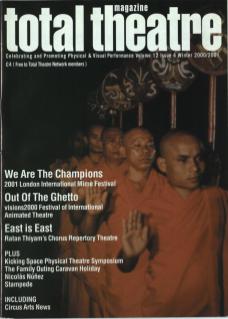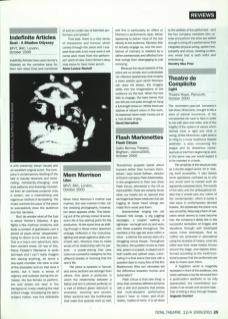The seventeen-year-old company's last show, Mnemonic, brought to life a story of eternal recurrence of the compromise we have to face in order to live with laws and order, and of the fragility of the system of values which defines what is right and what is wrong. Unlike Mnemonic, Light seems to cling to a more traditional theatre aesthetic: a story concerning the plague and its disastrous consequences is told from beginning to end, in the same way you would expect it to be narrated in a book.
The simplicity of the structure acts as a double-edged sword, for in making itself accessible, it also leaves some spectators confused as to why one would want to narrate such an apparently surpassed story. The events of the story and the philosophical riddles that it entails lack any notion of the contemporary, which is surely a vital issue in contemporary devised theatre. Yet stylistically the piece runs very smoothly. Rescuing a form of narration which seems to have become lost, the company's ability lies in the successful recreation of images and situations through well developed Lecoq mime techniques. And so coffins are produced in abundance using the simplest of means, cows are killed and their dead bodies thrown around the stage, and objects transformed according to the multi-functional purpose that the performers are able to invest upon them.
A forgotten world is magically recreated in front of the audience, one which perhaps is too far removed from a postmodern aesthetic to be fully appreciated, but nevertheless succeeds in its simple and ancient task – that of telling a story through theatre.

